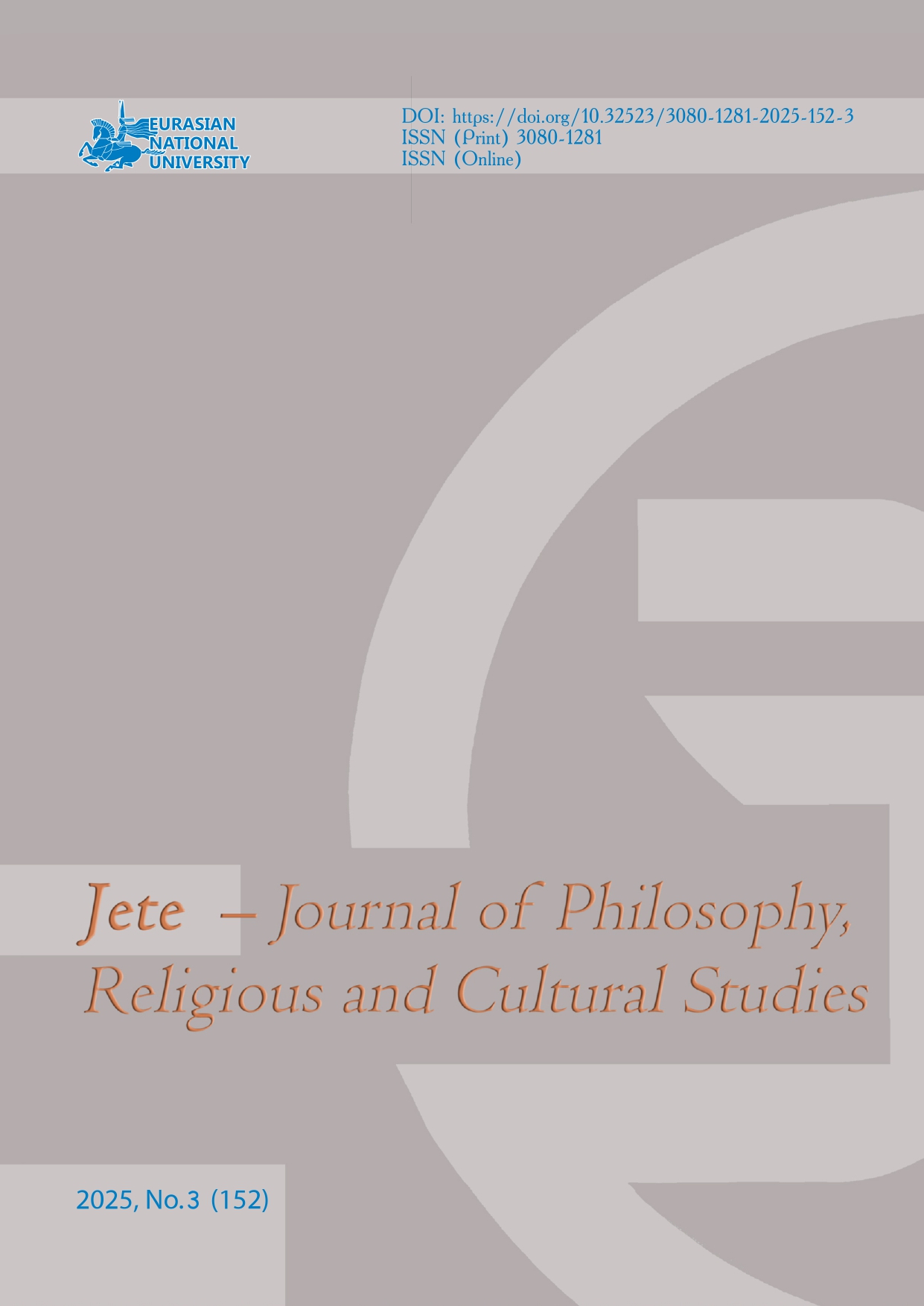MEDIEVAL ISLAMIC PHILOSOPHY AND SCHOLASTICISM: THE INTERACTION OF TRADITIONS AND INTELLECTUAL EXCHANGE
Scientific article
Views: 216 / PDF downloads: 102DOI:
https://doi.org/10.32523/3080-1281-2025-152-3-137-147Keywords:
Islamic philosophy, Scholasticism, Aristotle, Ibn RushdAbstract
The Middle Ages were an important period for the development of Islamic philosophy. The philosophical branches that emerged in the Islamic world during this era contributed not only to Islamic countries but also to intellectual development in Europe. This study will consider the main features of medieval Islamic philosophy and its connections with European Scholastic thought. Islamic philosophy was formed under the influence of ancient Greek philosophy and developed with the translation of the works of Aristotle and Plato into Arabic. Philosophers such as Al-Farabi, Ibn Sina, and Ibn Rushd were able to contribute to the fields of logic, metaphysics, and epistemology by systematizing this thought. Academic centers such as the "House of Wisdom" that emerged in Baghdad played an important role in the spread of science and philosophy.
European Scholasticism underwent changes since the twelfth century, thanks to philosophical and scientific works from the Islamic world. The translation work carried out during this period in regions such as Andalusia and Sicily enabled Ibn Rushd's commentaries on Aristotle to reach Europe and contributed to the formation of Western thought. One of the Scholastic philosophers, Thomas Aquinas, was impressed by the works of Ibn Rushd and tried to establish Christian theology on a rational basis. In this article, the influence of medieval Islamic philosophy on European thought and worldview will be considered from a historical and philosophical point of view, and attention will be paid to the importance of intellectual interaction between two civilizations.
Downloads
References
Abdurrahman Badawi. (1954). Fontes sapientiae (‘Uyun al-Hikmah). Cairo. [in Arabic]
Askar, L. A., Atash, B. M., & Pernebekova, D. P. (2023). Creative ideas of Arabo-Muslim philosophers and their attitude to logic. The World of a Human, 4(98), 3–16. [in English]
Christel, H. (1985). Definition und Einleitung der Philosophie – Von der spaetantiken Einleitungs Literatur zur Arabischen Encyclopaedie. Bern and New York. [in English]
Dossett, R. D. (2014). The historical influence of classical Islam on Western humanistic education. International Journal of Social Science and Humanity, 4(2), 88–91. [in English]
Gahramanova, K. (2022). Spirit and consciousness concept of Al-Farabi. Al-Farabi, 80(4), 54–61. [in English]
Kairbekov, N. E. (2018). Philosophy of Islam during the reign of the Karakhanid dynasty. Bulletin of KazNU. Series of Philosophy, Cultural Studies and Political Science, 56(2), 83–89. [in English]
Lagunovskaya, E. A., & Kolyada, M. S. (2021). Islamic philosophy: History and genesis. Scientific Notes of Brest State Technical University: Humanities, 3, 141–146. [in English]
Mahdi, M. (1969). Kitab al–huruf. Beirut. [in Arabic]
Mahdi, M. S. (2001). Alfarabi and the foundation of Islamic philosophy. The University of Chicago Press. [in English]
Markov, A. V. (2019). European classical philosophy. Moscow: Publishing House AST. [in Russian]
Nurysheva, G. Zh., & Zhanykulov, N. O. (2018). Al-Ghazali's accusation of the philosophers of takfir and Al-Farabi. Bulletin of KazNU. Series of Philosophy, Cultural Studies and Political Science, 58(4), 115–120. [in English]
Seitakhmetova, N., & Zhandosova, Sh. (2016). Philosophy in the 21st century: A problematic perspective. The World of a Human, 3(69), 21–27. [in English]
Stroumsa, S. (1991). Al–Farabi and Maymonides on Christian philosophical tradition. Der Islam, 68(2), 264. [in English]
Downloads
Published
Issue
Section
License
Copyright (c) 2025 Фэриде Камалова, Акмоншак Усаинова, Бауыржан Ботакараев, Асем Тастанова (Автор)

This work is licensed under a Creative Commons Attribution-NonCommercial-NoDerivatives 4.0 International License.













